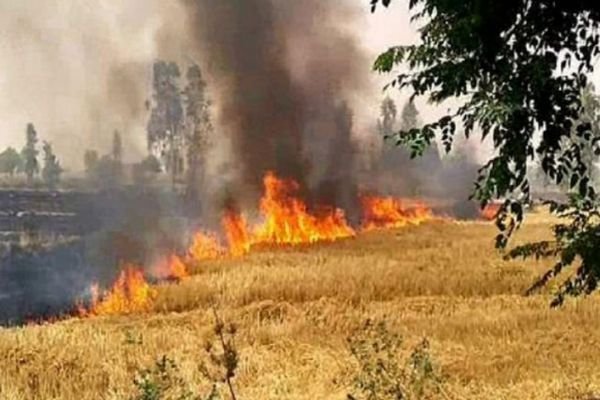The problem of crop residue burning has been intensifying over the years, with Punjab, Haryana and Uttar Pradesh being the major burning hotspots. Increased mechanization, declining number of livestock, long period required for composting and no economically viable alternate use of residues are some of the reasons for residues being burnt in field. This not only has implications for global warming, but also has an adverse impact on air quality, soil health and human health.
In a significant step to combat climate change and air pollution arising out of crop burning, the Ministry of Environment, Forest and Climate Change has approved a regional project on ‘Climate Resilience Building among Farmers through Crop Residue Management’ under the National Adaptation Fund for Climate Change (NAFCC).
The first phase of the project has been approved at a cost of approximately Rs. 100 Crore for the States of Punjab, Haryana, Uttar Pradesh and Rajasthan. The project will leverage approximately three times the approved amount with contribution from the States as well as farmers.The project not only aims to mitigate climate change impacts and enhance adaptive capacity, but will also counter the adverse environmental impacts that arise from burning.
The project will be implemented following a phased approach. Initially, awareness generation and capacity building activities will be undertaken to encourage farmers to adopt alternate practices which would also help diversify livelihood options and enhance farmer’s income. A slew of technological interventions will be undertaken for timely management of crop residue in addition to effective utilisation of existing machinery.






